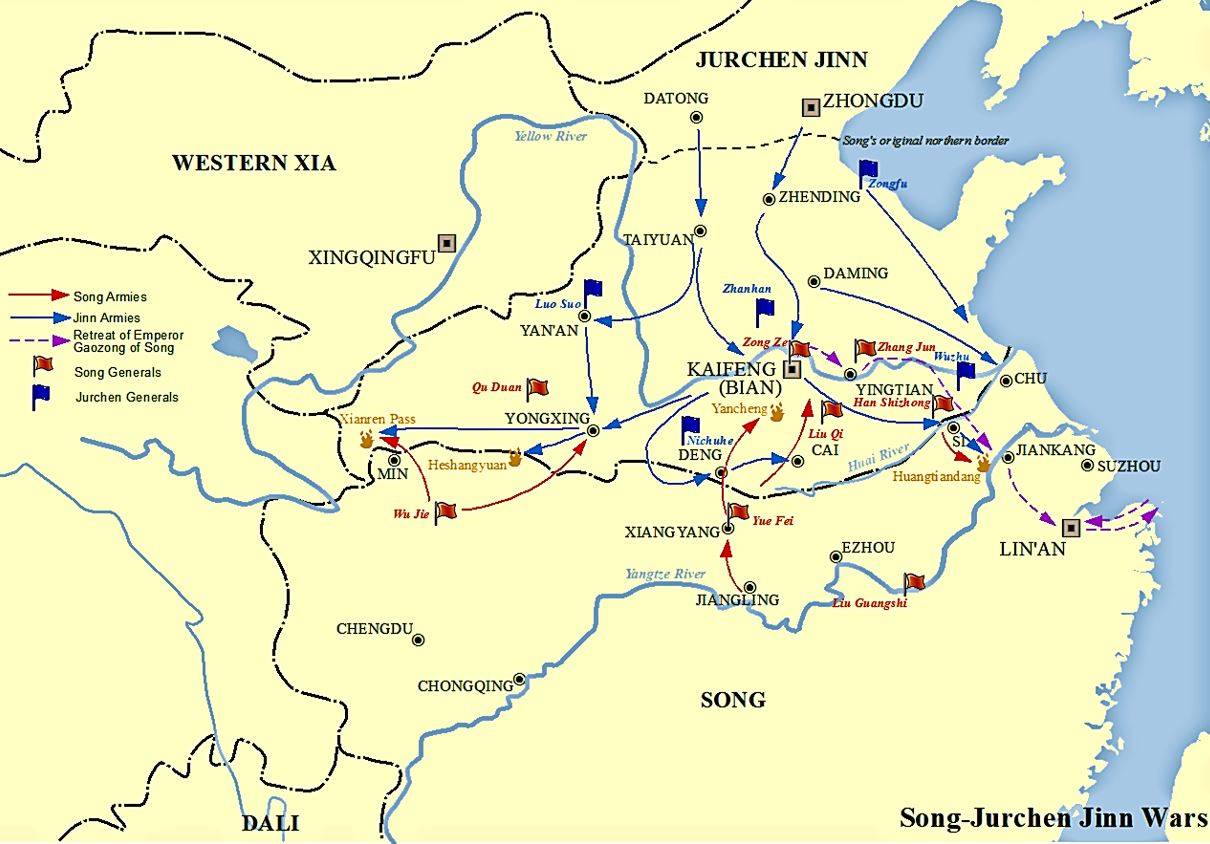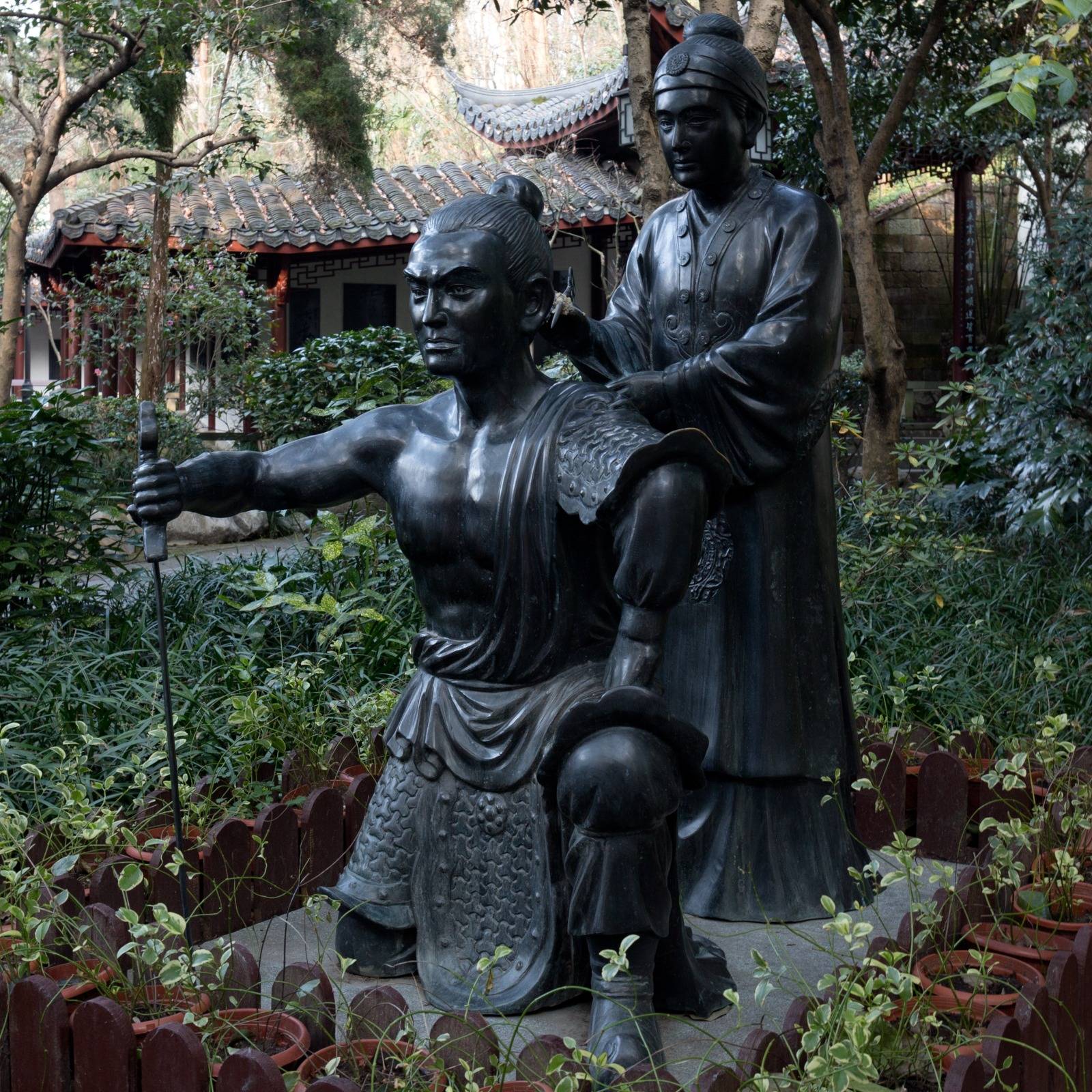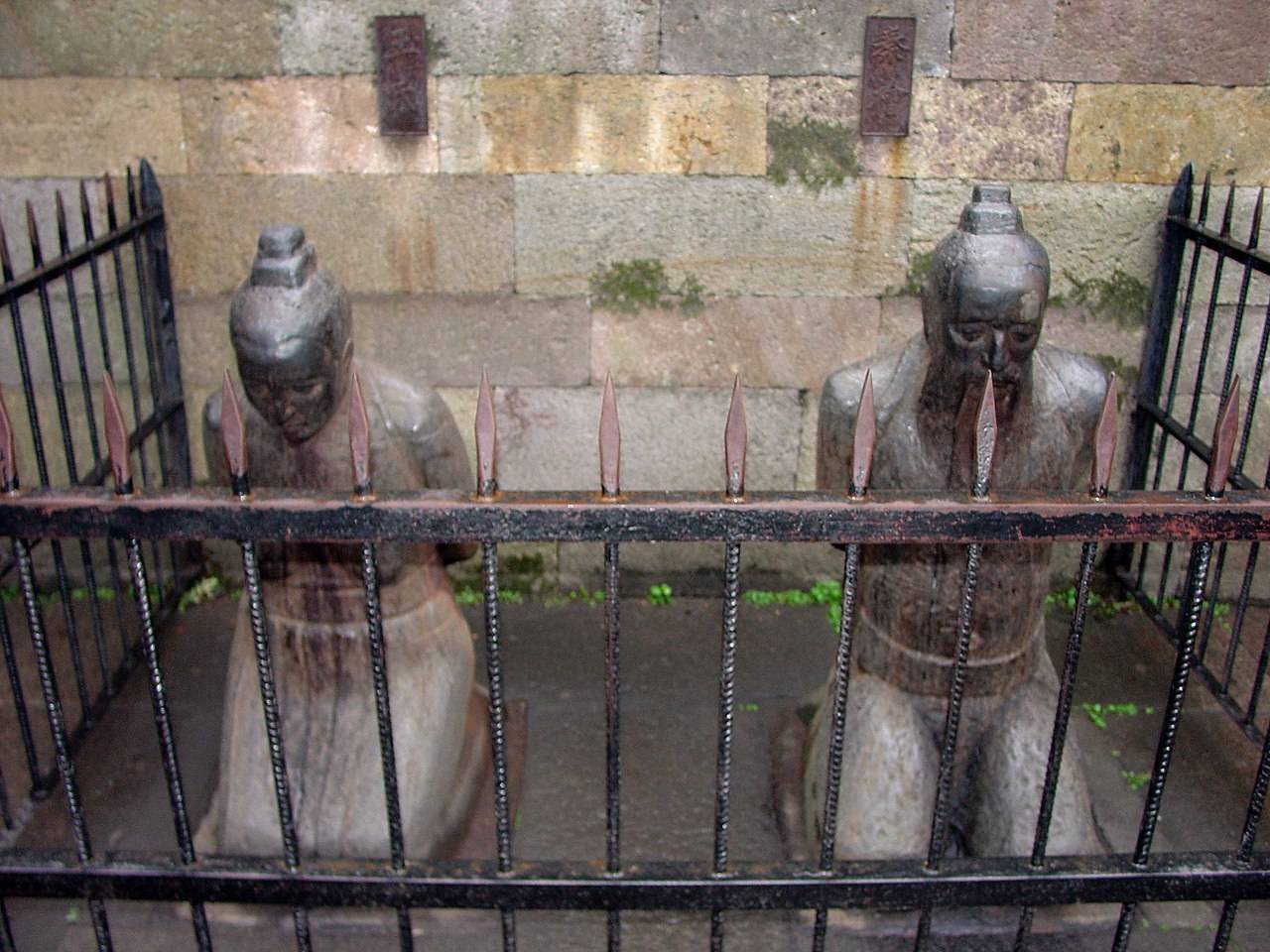Every military man is trained to charge into battle brandishing weapons. But one real life soldier became famous for his willingness to put his weapons down when his family needed him. At a young age, Yue Fei won the admiration of his country for his incredible feats in battle against a terrifying enemy – but in the end, it was dark forces at home, in his own Emperor’s palace, who would take his life, says Meno Montier
THERE HAVE BEEN literally millions of military men in China’s history—and almost all have been forgotten. So what has made General Yue Fei famous for nine centuries? He was an exceptional soldier with a string of extraordinary victories – but he was also devoted to respecting Chinese family traditions.
He has become the archetype of the loyal Chinese soldier, who serves the motherland – and his mother.
But his story is also a dark one, about betrayal and treachery.
As with many legendary Chinese heroes, there are many writings about Yue Fei from different authors, ranging from what appear to be historical records to what are clearly pieces of imaginative fiction. But both give a portrait of a brave soldier who prized filial loyalty and faithfulness to his country above all things.
Here’s his story.
A baby was born to the Yue farming family of Henan in 1103. It is said that a great bird landed on the building, so the child was named Fei, meaning “flight”. Literacy was rare back then but Yue Fei’s father, a poor farmer, taught him to read, hoping that it would spark an interest in him for a grander life than farming. It did, but perhaps not in the career his father had planned. Little Fei studied military scholars like Sun Tzu, Zuo Zhuan and Wu Qi.
War broke out between the people of the Song and the northern tribes of the Jin Dynasty, known as the Jurchen, in the area that later became known as Manchuria. Fei wanted to fight. He joined the Song military in 1122, and was soon an active member of the army in battle.

But then news reached him that his father had died. In ancient China, devoted followers of tradition would resign from their job to return home to mourn a parent. He went back to his family home and spent 27 months in mourning.
One of the most famous anecdotes of Yue Fei’s life, although there is no way of telling how authentic it is, focuses on a scene where he is torn between going to fight for his country and staying home to look after his aging mother. She asked him to take off his shirt and turn his back to her. She then tattooed four characters on his back: 盡忠報國. This meant Serve the country with utmost loyalty. Her message was clear – the best way he could serve his mother was to serve their motherland. Afterwards, the young man pulled on his boots and headed for war.

After reenlisting, Yue Fei fought to suppress rebellions by local warlords responsible for looting in northern China and did so with victory after victory, becoming a natural leader for his troop.
Yue Fei’s rising reputation as a highly competent military leader attracted the attention of the Song court and in 1133 and he was promoted to leadership of the largest army near the Central Yangtze. Yue Fei, now a general, was only 30 years old. In the following years, he won a string of victories against what was seen as an impossibly strong foe. He moved the borders north, and fought further into Jurchen territory more so than any other attack had done.
DARK FORCES GATHER AT HOME
Yet perhaps his relative youth led him to miss the political manoeuvrings around him. In 1127, the northern tribes humiliatingly captured top members of the Song court: Emperor Qinzong, former Emperor Huizong, and a court official named Qin Hiu. They were taken away to exile.

But a few years later, Qin Hui suddenly returned, attributing his freedom to some miraculous set of events. He quickly won the favour of the new Emperor, whose name was Gaozong, and became Chancellor of the Southern Song empire in 1131. Mysteriously, Qin had also changed his political position to constantly wanting the people of the Southern Song to remain a vassal state to the powerful northerners.
Yue Fei was not happy about this, seeing him as a dangerous appeaser whose loyalties were with the northern tribes. There was growing tension between Qin and Yue.
But whatever political battles and physical battles were taking place, Yue’s loyalty to the concept of family and to Chinese traditions remained strong. His mother died in 1136, and he pulled out of a decisive battle. Again, he returned home and stayed for a mourning period. He eventually had to cut it short because the generals with whom he was working sent messages saying that he was needed back at the head of his troop.
LED INTO A TRAP
In 1140 Yue Fei initiated a general counterattack against the armies of the north. It was a long process, but he made headway. He was preparing his final assault against the enemy when he received an unexpected message from Qin Hui. The chancellor ordered Yue Fei to abandon his campaign, and in 1141 Yue Fei returned to the capital. Something was going on.
It was a trap. Qin and his accomplices framed Yue Fei for disobedience and treason and removed him from his position. He was arrested.
The story goes that when he was visited by officials in prison, who accused him of disloyalty, he stripped off his shirt and turned around. His body itself was a canvas for his beliefs, with the tattooed characters still clear: 盡忠報國: Serve the country with utmost loyalty.

But the treacherous Qin Hui had apparently made a secret promise to the Jurchen. He would stop the resistance by the Song people – and have its leading soldier executed.
Yue Fei was put to death. He was just 39 years old at the time.

Later, when the devious Qin went to a temple, he was surprised to find a “mad monk” named Feng Bo staring at him. Bizarrely, the monk would appear at odd times, always sweeping with his broom – and the rumor quickly spread that Qin should be swept away for his sins. Qin died soon afterwards.
Twenty-one years after his death, General Yue Fei was posthumously pardoned and is now regarded as a hero in China.
The Emperor of the time ordered that a statue of Yue Fei be erected, standing tall – and kneeling before him were statues of Qin Hui, his wife and accomplices.
Just as the soldier had shown respect to his mother and his motherland, so his enemies would have to show respect to him for ever.

While it is hard to separate the real stories from the fictional additions, it is easy to see why Yue Fei has become a hero to China. Every great soldier has to be willing to risk everything for his motherland. But this one was also willing to put down his weapon for his mother.
Image at the top from Wikimedia Commons
You can follow writer Meno Monteir on social media:
Twitter: @MonteirMeno
Instagram @menomonteir
Facebook: Meno Monteir

